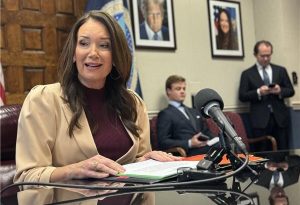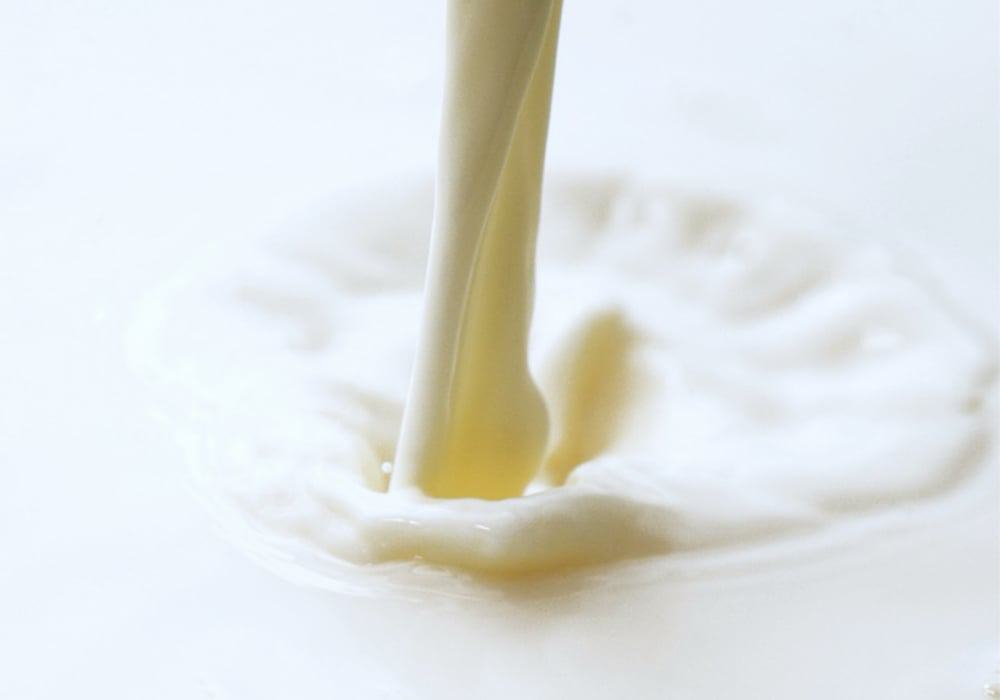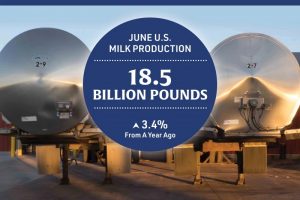
A senior American agricultural policy leader cautions Canadian farmers to expect a resurgence of the dairy dispute.
“Watch out on dairy. I think that’s real,” Ted McKinney, a former undersecretary at U.S. Department of Agriculture, a former Indiana minister of agriculture and currently chief executive officer of the National Association of State Departments of Agriculture, said at an event hosted by the Canadian Agri-Food Automation & Intelligence Network Feb. 12 in Ottawa.
He said American officials, politicians and agriculture groups thought there was a deal to allow more American dairy products into Canada, but that Canada has failed to provide that access.
“How (the) dairy (deal) was implemented here has really not set well,” said McKinney, who was the subject of a question-and-answer session.
“We felt betrayed. We feel betrayed.”
Canada’s crop farmers worry that they could be dragged into any dispute that arises over dairy as U.S. negotiators look for ways to pressure Canada to deal, said Grain Growers of Canada executive director Kyle Larkin in an interview.
Canada may refuse to discuss supply management in any trade talks, due to legislation such as Bill C-282, so other parts of agriculture could become bargaining chips.
“We’re very concerned,” said Larkin. “If supply management is off the table completely … there’s a major concern that the other side of agriculture could be affected.”
The U.S. has asked that Canadian retailers and other consumer-facing users be able to request American materials, but the Canadian government has continued the restriction.
Dairy politics played a big role in the run-up to the renegotiation and approval of the U.S.-Mexico-Canada Agreement, which replaced NAFTA. Trump made trips to Wisconsin to denounce Canadian restrictions on U.S. imports and demand access to the market.
Two dispute resolution panels have looked at the issue. The first provided a mixed result, which Canada and the U.S. both claimed as a vindication of their positions. The second panel exonerated Canada of the claim that it had broken the agreement.
However, one of the panelists criticized Canada’s restriction of imports to processors only.
McKinney is a vocal supporter of international trade and is opposed to the populist politics and protectionism that are growing in many parts of the world. He fears trade will become a political target again in this U.S. election year.
“Right now, we’re not doing much on trade, but boy oh boy, that rhetoric’s going to rise,” said McKinney, whose organization represents all the state agriculture ministries.
He said he hopes to a see dispute resolution that will provide American farmers with something closer to what they thought they were getting with the Trump trade
deal.
“We’re hoping the system will show whether we were right or we were wrong. Maybe there was a misjudgment,” said McKinney.
He urged Canadians to take the issue seriously and resolve it so it doesn’t bring other areas of trade into jeopardy.
“We’re going to get through this, but I think we’ll have to work through it.”
Larkin said Canada’s grain farmers and industries have been warned by a number of senators and trade sources that the dairy issue is not dead, that the Americans feel betrayed by Canada’s actions and that the politics could soon heat up.
“We just need to be super aware of this,” said Larkin.
The recent breakdown in talks between the United Kingdom and Canada over restrictions on beef and cheese “is just a small taste” of what could happen if the U.S. gets aggressive with the dairy dispute.
McKinney said he knows Canada has disputes with the U.S. too, such as the “Product of the USA” labelling scheme that could create discrimination against Canadian beef in the U.S. He joked that Canada and the U.S. could horse-trade on issues.
“We’ll make sure to take care and still allow your livestock to come down if you’ll fix dairy. How about that?” he said to laughter from the audience.
McKinney was opposed to U.S. mandatory country-of-origin labeling, which he described as “very misguided,” and said most of his colleagues at the time shared that view.
The dairy dispute is different. Most American agriculture interests feel Canada has betrayed the spirit of the agreement, he said, but there is room for positive negotiations on these touchy issues.
“I think we have got to continue the dialogue, which is what we have done,” said McKinney.
Dairy Farmers of Canada did not have a response to McKinney’s comments.























